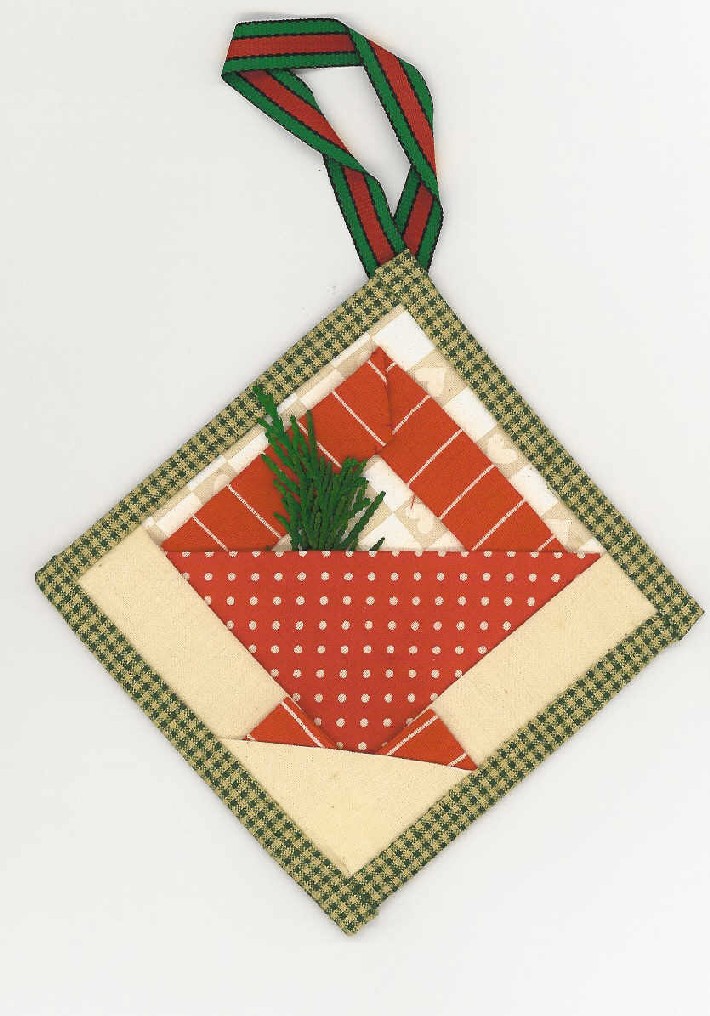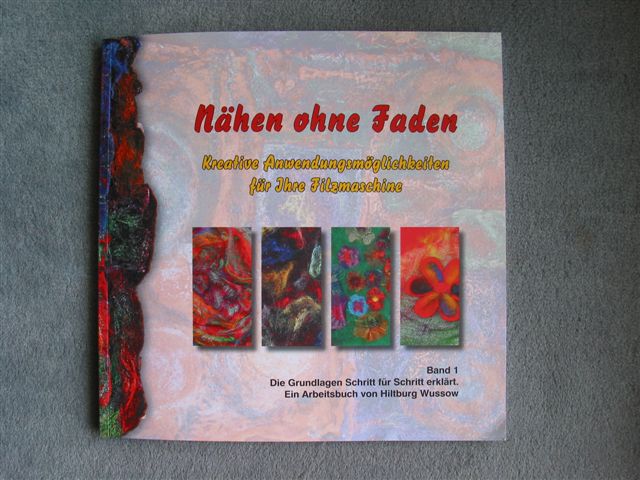The First African Quilting Guild in South Africa
After nearly two years of learning to quilt and selling their products, the ladies of Sweetwaters have formed a Quilting guild.
by Elisabeth Baratta
Hilton and Howick Rotary Club, South Africa
The basis for the guild started with Sister Alexia of the Dominican Order bringing five women from Sweetwaters to my home to learn how to quilt. They stayed for four days and did in fact produce two quilts. This created some interest in the community of Sweetwaters and several months later five aspiring artists were selected by School Leavers Opportunity Training (SLOT) to attend a course of instruction that I developed with the assistance of the Rotary Club of Hilton and Howick. The Rotary Club had leased an office complex in the heart of Sweetwaters, where nearly all of the population are Zulus. From this location the Rotary club provided lunch five days a week to all who came through the gates; as well as hosting several other NGOs and an outreach office for Home Affairs.
These five women selected spent four days a week training for three months and soon were joined by other women wanting to learn how to quilt. Rotary volunteers and two of the better students continued teaching to all who showed an interest. After nearly six months a group of fifteen women had emerged as genuine quilters, albeit their talents were rather basic.
The SLOT money had run out and the Rotary Club was funding the material and tools, although some of the women had started to pay for some material. The group continued training at my studio once a week. Each Friday the group would hire a taxis van to bring them to the studio and return them at the end of the day. During the week the quilters worked on “home-work” assignments and on Friday each quilter unveil their project to the criticism and admiration of the rest. Some work was selected as saleable while others had to be unpicked and brought back again for revaluation.
The ladies and their quilts attended local fairs and flea markets, and quilts were sold under the auspices of Rotary. The quilts may not have been award quality but they were colourful and cheap. I soon made contact with a Rotary club in the USA that agreed to auction off some quilts to their members. This proved so effective (and profitable) that other American clubs were contacted to sell the quilts. A Hilton and Howick Rotary sponsored tour of a school jazz band to the UK carried fourteen quilts for raffle prizes. The ladies were making money with their quilts, buying sewing machines and fabrics, and repeating the cycle of self-sustainability.
One of our marketing devices is to sew a fabric label with the photo and a brief bio of the quilt maker on the back of the quilts. This personalizes the quilts and is appreciated by foreign buyers.
Several months later the Rotary Club of Sarnia, Canada, saw the Rotary club’s article on the World Community Service web site and offered to provide 4800 Canadian dollars to assist HIV positive people. Four teachers were selected from the group, machines were purchased, and an invitation sent to the community for people whose families are affected by the AIDs pandemic to sign up for quilting lessons.
The financial success of the original quilters had spread and a host of people showed up for an interview and a brief manual skills test at a sewing machine. Thirty men and woman were selected (there were four men) and their training began, under the leadership of four student quilters who are paid a daily wage for teaching a class two days a week.
The original intention to train four days a week could not be met for lack of sewing machines. The Sarnia money provided ten machines, and there are fifteen other donated machines available, most of them hand and treadle machines about a hundred years old which had been motorized and keep breaking down.
Within a month the students were turning out quilts, some good and some not so good. By the second month the quality had improved and the first quilt from these students was sold. One of the men students had quilted it. By the third month the original thirty students had dropped down to about twenty and the quality had improved to the point were all quilts produced are saleable. Granted some of the quilts had to have minor corrections, but the ladies never complained about having to unpick.
During these months several ladies showed up claiming they could sew, but they wanted to learn to quilt and make money for their families. After testing, several were selected to join the Friday advanced group who were now meeting at the Centre where there were sewing machines and fabrics.
So there we are after two years with thirty –seven woman and three men who have been working in harmony together. Each day starts with a prayer and it is wonderful to hear the quilters breaking into song during the day.
The next step was to formalize the relationship and develop an organization. What else but a quilting guild.
By-laws were written and a provisional board elected. I took the chair for the first year, and the teachers made up the rest of the board. In a year I will step down and the group will hopefully be flying on their own (with minor or major assistance as needed).
Something more should be said about these people. They live in a community of 100,000, many without water or electricity, and with over 40% unemployment and an equal percentage of people HIV positive. The pandemic seems to hit hardest at the people in their twenties and early thirties; just when families had been started. The results are many “AIDs orphans” who are taken in by their grandparents. The grandparents are usually unemployed or living on a government pensions of less than 100 US dollars a month. This is really not enough to feed the large families.
We must also give a great deal of credit to the three men in the program. In the Zulu culture the woman does most of the heavy work, like collecting wood and water, cooking, washing, and all the necessary family chores, while the man is suppose to take care of the cattle and work. There are few cattle and no work in Sweetwaters and many men drift off to urban centres looking for work, and don’t come back leaving the women to take care of the family. For a Zulu man it is demeaning to do woman’s work, and sewing is certainly included. These men have to endure the cutting remarks of the other men in the community, who say that they have lost their pride. Of course being unable to support your family and living on the pensions of parents is not good for a man’s pride either.
In closing we must thank the Rotary clubs for helping us to help ourselves. They have not only given us a hand out, but most importantly, a hand up. The Rotary Club of Hilton and Howick Sweetwaters Quilting Guild is in business and is here to stay. We are only the first of our kind in South Africa. There are millions of people unemployed and trying to keep there families together; millions of potential quilters just waiting for an opportunity; and certainly millions of potential customers for quilting tools and fabrics. It may take a bit of time before the Amish feel challenged, but all that these people need is a little help, and a little hope. One is always free to hope.
Biography of Elisabeth Baratta
Email: rickbaratta@iafrica.com
Born in Germany during the last war she was trained as an interior decorator, and later educated in the USA, obtaining a masters degree and taught for a while. Elisabeth operated her own antique furniture outlet until she decided to move to South Africa 12 years ago when her husband retired from police work. Five years ago she returned to her old love of quilting, and began holding quilting classes locally. She eventually joined with her Rotarian husband in the Sweetwaters Project, and this year joined the Rotary herself, winning a Paul Harris Fellowship for her efforts.


